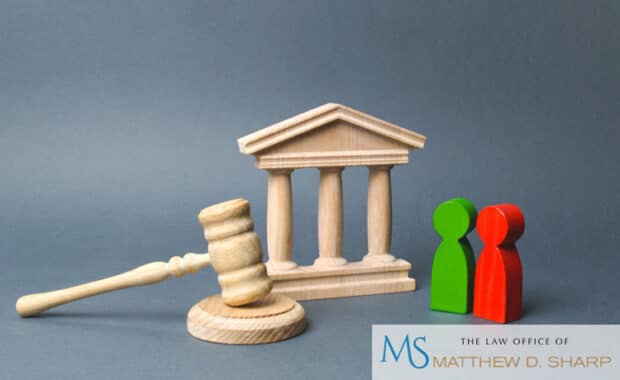A criminal record can have a lasting effect on the life of someone convicted of or even charged with a crime. It can cause big trouble later in life when trying to get a job, apply for a loan, or even rent an apartment. Fortunately there are ways to clear a record from the past. There are two ways to limit access to arrest records or even clear them completely.
The first option is record sealing. This results in the record remaining on file, but with access to it restricted. Government agencies or someone with a court order could still gain access to the records. Expungement, also known as expunction, means that the record is completely cleared from existence. The file and any documents with it are destroyed, resulting in a clean official record. Not everyone is eligible for these options, so it is best to know a bit more about the restrictions and filing processes.
Eligibility for Expungement in Houston
Only certain records can be erased from a personal history. The following are the types of records that are eligible for this action:
- Cases where the person is found not guilty of the charges
- Convictions when later found innocent
- Pardons of convictions
- When formal charges have been dismissed, and
- Arrests without charges being brought
In the last case of being arrested but never charged, there are more restrictions that apply. For felony records, a waiting period of three years needs to be observed before the applicant can file for expungement. In the case of class A and B misdemeanors, this waiting period is one year. If arrested for a class C misdemeanor but never charged, the waiting period is reduced to 180 days. For pardons, overturned convictions and not guilty cases, there is no specific waiting period before filing for expungement.
The biggest benefit of expungement is that the records no longer exist. Even if a government agency looks through a person’s history, no record of the arrest or charges can be found. It is as if the event never even happened.
Cases Eligible for Record Sealing
Unlike expungement, sealing records (also known as orders of non-disclosure) only limits who can access records, and when they can be accessed. If records are successfully sealed, it will take a court order to gain access to the records, meaning that the general public will not be able to see them. Record sealing becomes a bit more complicated because it depends upon a judge deciding if sealing the records is in the best interest of the public. Even if eligible for sealing, some cases may not be granted by a judge. Again, there are only certain records that are eligible to be sealed. These include:
- Class A and B misdemeanors and felonies with deferred judgement, and
- Completion of community supervision
- Records for the above cases where no later arrest occurred
While it does depend upon a judge’s decision for each case, applying to have records sealed means that on job applications there will no longer be the need to disclose an arrest or conviction. It does not mean that records are completely erased, however. Certain agencies that provide care for the elderly or children, for example, can still access the records. Any arrests after the first case can also mean that the records are not eligible to be sealed.
How to File for Record Sealing or Expungement
While every case is different and professional legal advice should be found to help with the process, the application process for both of these is similar. It involves:
- Submitting a notarized application
- Waiting to have a hearing scheduled and notifications sent
- Holding the hearing
- Having the petition granted or denied
Clearly nobody wants a criminal history, especially in cases where a pardon was given, innocence was later proven, or where a not guilty verdict was delivered. These records can follow a person around for life, limiting access to employment, housing, and other essentials. Luckily there are ways to have these records cleared. In many cases, finding a lawyer to help with the process will improve the chances of success and lead to finally having a clean record.




